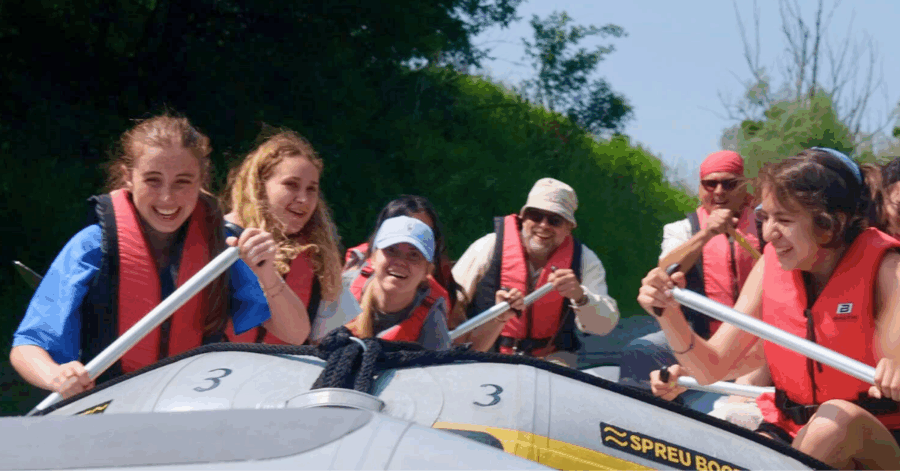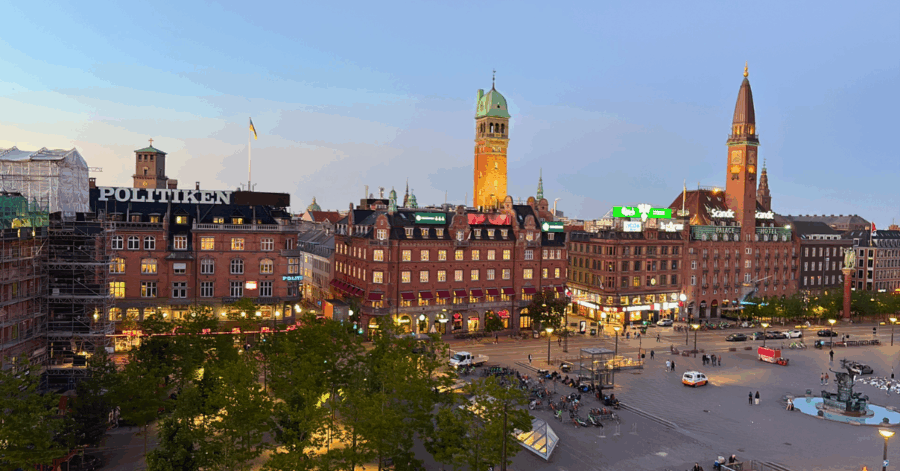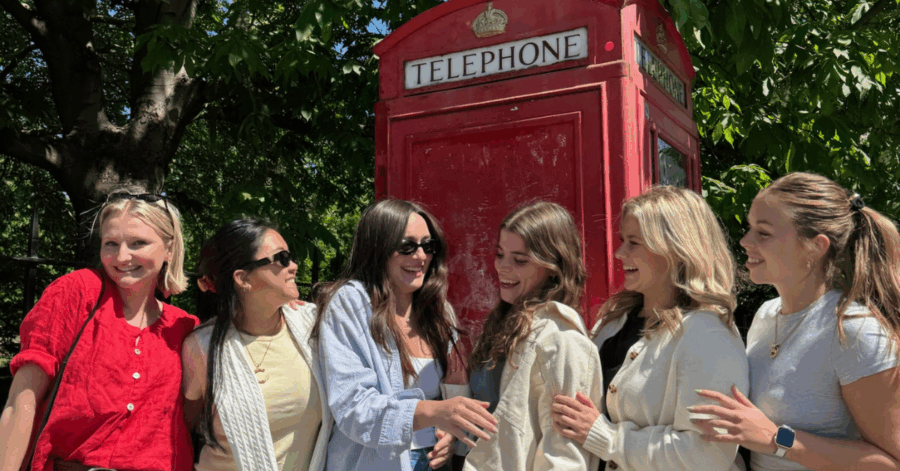This post was contributed by Spring 2020 Global Ambassador Sabrina LeBoeuf, a journalism and RTF student studying abroad in Madrid, Spain. Read more about Sabrina’s experience.
This semester, I decided to study in Madrid, Spain for two main reasons: I wanted a place to practice my Spanish, and I wanted to travel around Europe. Although I grew up speaking Spanish thanks to my wonderful Panamanian mother, my Spanish is not at all perfect, and I appreciate any opportunity to brush up on it. This means I do not struggle to get around Madrid compared to my peers who are learning Spanish for the first time or have taken Spanish classes the past few years.
 For them, not knowing the language can sometimes be an issue. One of my friends practices phrases she’ll need for the day before leaving her apartment. Others rely on pointing at which menu item they want and nodding. I, on the other hand, have never truly known or experienced a language barrier. The only other country I’ve visited is Panama, and there, everyone speaks Spanish. I’ve never known what it’s like to be in a city surrounded by signs I’m unable to read—until this past weekend when I took a trip to Brussels, Belgium.
For them, not knowing the language can sometimes be an issue. One of my friends practices phrases she’ll need for the day before leaving her apartment. Others rely on pointing at which menu item they want and nodding. I, on the other hand, have never truly known or experienced a language barrier. The only other country I’ve visited is Panama, and there, everyone speaks Spanish. I’ve never known what it’s like to be in a city surrounded by signs I’m unable to read—until this past weekend when I took a trip to Brussels, Belgium.
Belgium’s official languages are French, Dutch and German, none of which are languages I know. Before I landed at the airport, I was ecstatic to eavesdrop on conversations I didn’t understand, read signs I couldn’t pronounce, and feel overwhelmed by an ignorant bliss.
 However, after landing in Brussels, I came to find out that some signs would have English translations and intercom announcements would be translated. It wasn’t the complete immersion I expected, but I should have known better given that Brussels is Belgium’s capital.
However, after landing in Brussels, I came to find out that some signs would have English translations and intercom announcements would be translated. It wasn’t the complete immersion I expected, but I should have known better given that Brussels is Belgium’s capital.
It wasn’t until I reached the train station that I had some difficulty understanding. I reached a terminal where I needed to scan a card in order to get through the turnstile, but my card would not scan properly. The scanner would beep and yell at me any time I tried scanning. Without understanding the words, I understood the message. I needed to ask for help. I turned to the nearest employee, nervous to ask the question, “Do you speak English?”
 I was nervous to ask because back in Madrid, I dislike when people try to speak to me in English. After all, I came to Madrid to practice Spanish. Deciding to ask someone to speak something other than the official language of their country made me feel hypocritical. It also helped me value people speaking English back in Madrid more than I did before.
I was nervous to ask because back in Madrid, I dislike when people try to speak to me in English. After all, I came to Madrid to practice Spanish. Deciding to ask someone to speak something other than the official language of their country made me feel hypocritical. It also helped me value people speaking English back in Madrid more than I did before.
Luckily, the employee did, and he was able to help me and my friends get to our next train. On the ride to our Airbnb, I watched the signs flash past the car window as they evolved into Dutch, French and German. The next day, as we walked in and out of shops and museums, it was hard to kick my Spanish habit of saying “Hola” and “Gracias” when everyone else was saying “Bonjour” and “Merci.” I think my favorite part was when the waiter brought our food to our table and said “Bon Appétit.”
Overall, exposing myself to a land of three unfamiliar languages was truly a treat accompanied by its own share of challenges. I can’t wait to try my hand at other countries with other unfamiliar languages, and hopefully I’ll be able to pick up a few words and phrases along the way.





